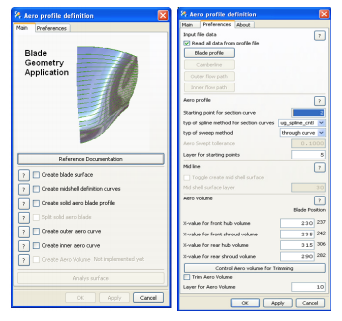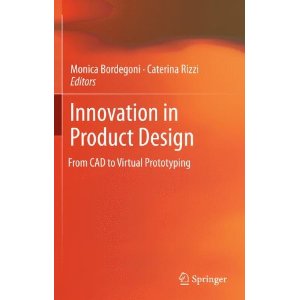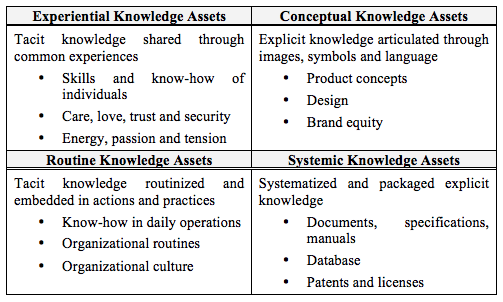 The Faste Laboratory – A VINN Excellence Centre
The Faste Laboratory – A VINN Excellence Centre
VINN Excellence Centre for Functional Product Innovation.
2007-2016 (ongoing)
PROJECT SUMMARY
Functional Product Innovation will be the main contribution to sustainable growth in that the function provider will have the responsibility of the physical artefact throughout the life-cycle and by innovations also have the capacity to continuously improve the customer value.
Vision: Functional products can be developed and offered to the market with known risk, lower cost, less environmental impact and with better customer value than today.
Objectives: To examine how physical artefacts and services may be designed and developed to become an element in a total offer, as well as enhance integrated product development to extend towards functional product development.
Strategy: The focus on Functional Product Innovation, building on the strong and innovative research in Functional Product Development, Simulation Driven Design and Distributed Collaborative Engineering, creating the capability to identify, model and simulate offer components in the early phases of the development process, and to support a closer partner collaboration.
PROJECT INFORMATION
Role: Initiator, co-applicant, project leader, supervisor and upcoming centre director
Type: Research
Keywords: Functional Product Development, Knowledge Enabled Engineering, Distributed Engineering, Product Development
Application area: Manufacturing industry, Automotive industry, Aeronautics and Space, Pulp and Paper, Mining and Ore
Time frame: 2007-2016
Funding: 244 MSEK
Research unit: Luleå University of Technology
Partners: AB Sandvik Coromant (SC), BAE Systems Hägglunds (BAE), Gestamp HardTech AB (GHT), Hägglunds Drives AB (HD), LKAB (LKAB), Metso Panelboard (MP), Volvo Aero Corporation (VAC), Volvo Car Corporation (VCC), Volvo Truck Corporation (VTC)
PUBLICATIONS
- Functional product innovation : reaping the benefits of simulation driven design
- In search of what is missing : needfinding the SIRIUS way
- On the way to knowledge awareness in early design
- Need driven product development in team-based projects
- Rethinking virtual teams for streamlined development
- Virtual meeting interoperability : discussing the need of support for heterogeneous meeting environments
- Collaboration in winter vehicle testing : real-time simulations boosting innovation opportunities
- Distribuerad simulering och visualisering av fordonsdynamik i realtid
- Knowledge enabled engineering – knowledge lifecycle approach
- A methodology for KEE systems target cascading
- Manufacturability evaluation in early design : on the dependency of business commitment
- A framework for collection of collaborative design research
- Examining creative collaboration in distributed and co-located design teams
- Banking on social capital : towards social connectedness in distributed engineering design teams
- Pilot specifications definition guidelines for the implementation of a KEE solution in the aeronautical domain
- Gated maturity assessment : supporting gate review decision documents with maturity of knowledge assessment
- Design for manufacturing : methods and applications using knowledge engineering
- Knowledge engineering in the virtual enterprise : exploring a maturity-based decision support
- A need-based approach to product development
- Educating engineering designers for a multidisciplinary future
- Concept automation and decision support in a functional product development perspective
- Needs as a foundation for life-cycle commitments
- Open approaches and methods to enable Functional Product Development
- Enabling technologies for distributed collaboration in functional product development
- Knowledge engineering for functional product innovation
- Prompting innovation : dedicated places
- Supporting decision making with agent-based modelling and simulation
- A new method to preserve knowledge and information by use of knowledge enabled engineering
- Needs as a basis for design rationale
- Manufacturing system to support design concept and reuse of manufacturing experience
- Current industrial practices for re-use of manufacturing experience in a multidisciplinary design perspective
- Engineering 2.0 : exploring lightweight technologies for the virtual enterprise
- The issues and benefits of an intelligent design observatory
- Introducing strategic decision support systems for sustainable product-service development across value chains
- Rethinking virtual teams for streamlined development
- Product-service systems : from customer needs to requirements in early development phases
- Boundary conditions for product/service-systems
- Lightweight technology support for product/service-systems conceptual design
- Challenges for industrial product/service systems : experiences from a learning network of large companies
- PLM paradigm : how to lead BPR within product development field
- Exploring challenges for innovation-driven virtual enterprises
- Prototyping – a way to think together
- Development of product-service systems : challenges and opportunities for the manufacturing firm
- Towards virtual co-location in functional product development
- Requirements for a KEE system supporting PSS development
- Challenges in open innovation practices for industries
- Needs and requirements : how TRIZ may be applied in product-service development
- A methodology for evaluating technology readiness during product development
- Towards life-cycle awareness in decision support tools for engineering design
- Implementation of open innovation practices in Swedish manufacturing industry
- Development of product-service systems : challenges and opportunities for the manufacturing firm
- How is knowledge and information evaluated? : decision making in stage-gate processes
- About the use of TRIZ for product-service development
- Embracing entrepreneurial behavior in a research school
- Challenges for experience feedback in engineering design
- Open innovation practices in SMEs : extent and effects
- Probing for innovation : how small design teams collaborate
- Knowledge engineering models as experience carriers
- An intelligent design environment : overcoming fundamental barriers to realising a step change in design performance and innovation?
- Lessons learned and future challenges for design observatory research
- Design thinking challenges in education
- Exploring lightweight knowledge sharing technologies for functional product development
- Introducing PSS thinking in product-based organizations : a case study in the Swedish manufacturing industry
- PSS innovation : discussing knowledge based tools
- Lightweight technology support for product/service systems development
- Towards a framework for developing product/service systems
- Reuse of manufacturing experience to support development of product/service systems
- Take the knowledge path to support knowledge management in product/service systems
- People, product and process perspectives on product/service-system development
- Value creation in PSS design through product and packaging innovation processes
- Towards open innovation practices in aerospace industry : challenges and opportunities
- Assessing the value of sub-system technologies including life-cycle alternatives
- Towards sustainability-driven innovation through product-service systems
- Towards a framework for developing product/service systems
- Measuring innovation capability in product/service system focused development
- Knowledge retention and reuse : using CAD models as carriers of knowledge in product development



